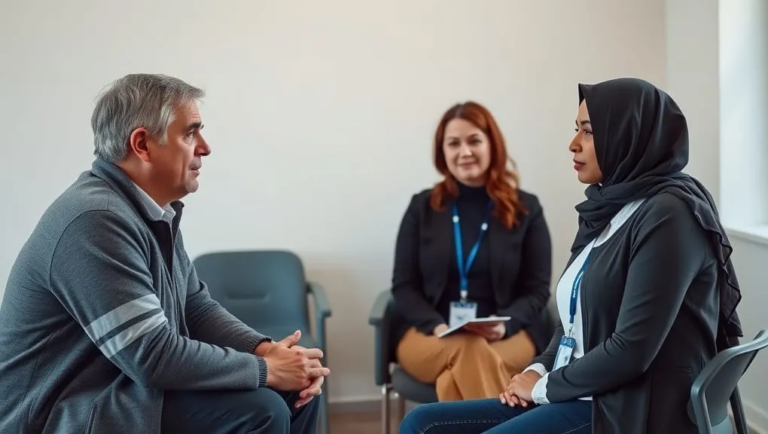Need to speak to someone?
Call 0116 254 4388
Chat live
Contact us via our online form
Amica provides counselling emotional and psychological support but not policy advice


Mediation focuses on establishing clear and appropriate communication between the parties in a constructive and safe environment and requires that people attend with a commitment to listen to and respect each other in order to find new ways ahead. The process helps establish and agree a plan for the parties involved to move forward.
All our mediators are UK Mediation trained and follow their code of practice. Amica bring in-depth knowledge of psychological processes to the resolution of disputes.
Workplace mediation addresses: Communication issues, personality clashes, management style conflicts, allegations of bullying, harassment, unfair treatment, reorganisation or redeployment difficulties
Benefits include: Improving and preserving working relationships, avoiding costly and time-consuming formal actions, retaining staff and identifying training needs, ensuring employer compliance with legislation and best practices.
Both parties voluntarily agree to take part in a structured mediation session (in person or online). With the support of a neutral mediator, they are given space to share their concerns, listen to each other’s viewpoints, and work together to develop mutually acceptable solutions to their conflict.
Confidentiality is part of the mediation agreement and no reports will be sent to management or HR, unless both parties specify and agree on what might be shared on the day.
Both parties need to be aware at the outset, that the mediation process will require they be available for the full day.
The mediation and anything discussed during the meetings, cannot be used in any other process in the future.
There will be initial individual meetings with both parties – these meetings are confidential and usually last approximately 1½ hours. They are held in a private, informal and neutral setting. The purpose of the initial meeting is to discuss the difficulties being experienced and your view of the issues between you and the other party. The mediator will help you to consider what needs to happen and what you require from the other person/people involved. The details of the meeting remain confidential, and provided there are no risk or safety issues, the mediator will not divulge any information from that meeting without your consent.
If all parties concerned are ready to move ahead, the mediator will set up a joint meeting.
This allows a more comprehensive airing of everyone’s views and offers a chance for people to speak directly to one another. The aim of this joint session is for the participants to reach agreement on how to improve their working relationship. The meeting usually lasts about half a day, however in some cases a second joint meeting may be needed if there are a number of issues involved, or if more negotiating time is required.
The agreement is a joint plan of what needs to happen in order to improve everyone’s relationships. The participants, not the mediator, decide what gets included in the agreement.
When an agreement is reached during the joint session, the mediator will draft this in written form. The agreement does not constitute any form of report about the history of the dispute, or who is at fault. It focuses on what has been agreed to happen in the future.
The mediator will follow up confidentially with each party in 6-8 weeks following the mediation. This will take place via email and is intended to establish if the agreement is working and if any further input is required from the mediator.
Amica provides counselling emotional and psychological support but not policy advice